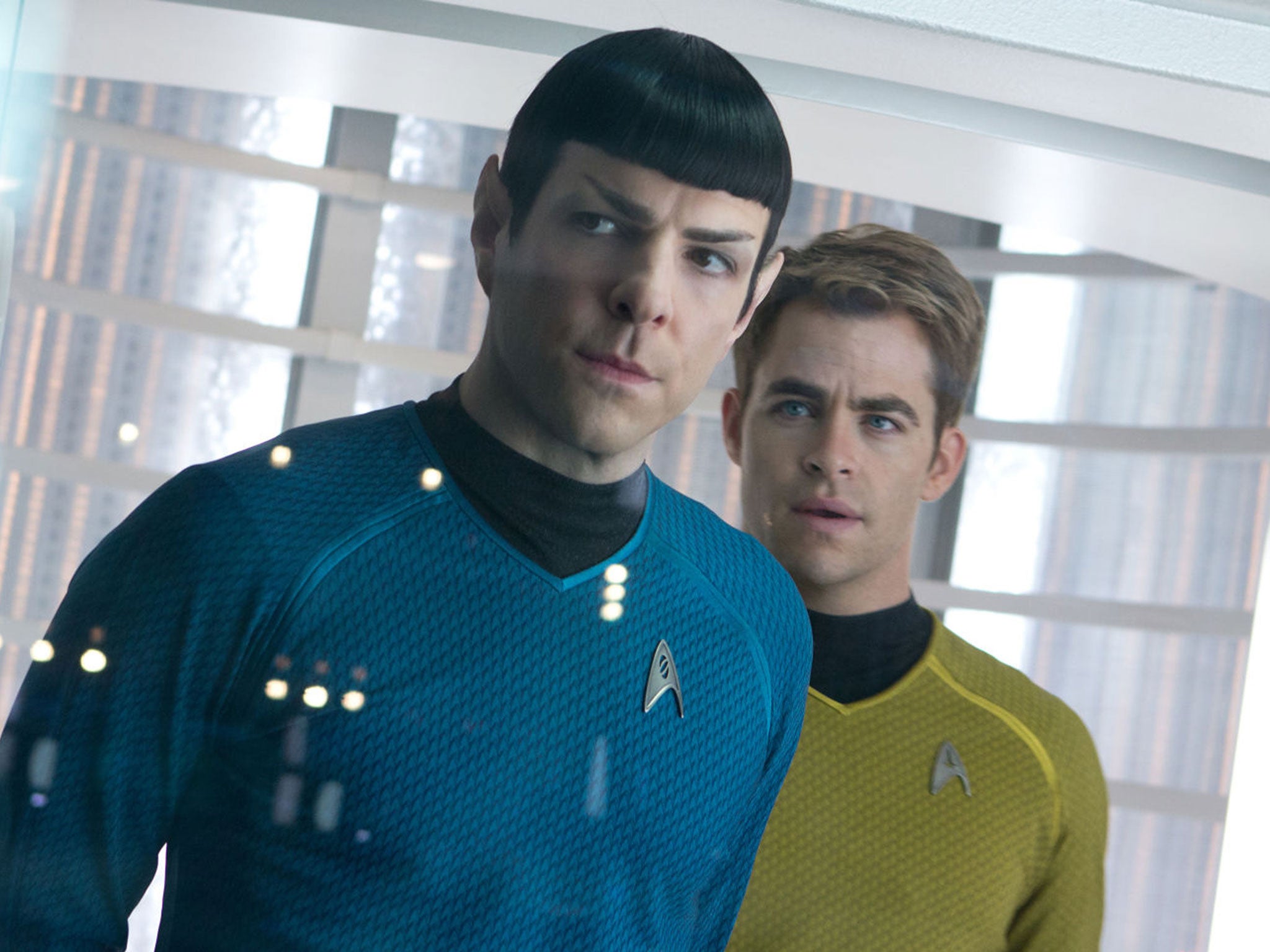Star Trek offers a rare optimistic view of humanity - and its return to TV can do a lot for progressive values
Most depictions of the future nowadays suggest dystopia is the only way to go. Star Trek offers us something different

I have been a Star Trek fan for my entire life. Growing up in the eighties, my earliest memories are of being curled up in my Dad’s lap as we watched endless repeats of my heroes - Kirk, Spock and McCoy – galloping round the cosmos, fighting rubbery monsters and learning the power of friendship. The franchise has since exploded to form part of our pop culture. You needn’t have taken in the twelve movies or five television series to know that phasers are best set to stun, warp speed is the expedient way to travel, and Mr Spock is hard to get angry.
The two recent JJ Abrams movies have kept Star Trek popular but the absence of Trek on television has been tough for fans. Trek isn’t built to slog it out with dinosaurs and superheroes for the multiplex buck. Its true power resides in the dexterity that episodic story-telling involves. It allows for weekly allegorical morality plays – revealing a favourable diagnosis of the human condition. All hidden behind wobbly sets and grown-ups in pyjamas.
So the news that Star Trek is set to return to the small screen is the most exciting thing to happen for us fans since Star Trek: The Next Generation debuted in 1987. Undoubtedly, the landscape of entertainment and culture itself will benefit. Most depictions of the future involve the Mad Max/Planet of the Apes brand of dystopia which (probably correctly) predicts that we will ultimately succumb to our warlike and selfish nature: worshipping the bomb or the coin until our ultimate demise.
Trek posits that we might actually harness our ingenuity and compassion and bind ourselves together as a species to create a better future. That our insatiable curiosity will inspire a co-operative race to the stars. This is inspiring stuff. Literally. I promise you that if we walk the halls of the brilliant dreamers of NASA, and throw a rock, we’ll hit a Trekkie or two.
Consider also the efforts that Star Trek has put into furthering the causes of social justice. Only two years after US law forbade racial segregation, Star Trek had a black female officer on the bridge - with a name derived from the Swahili word for ‘freedom’. Nichelle Nichols, who plays Uhura, thrills the convention circuit with the tale of being talked out of leaving the show by Dr Martin Luther King. The story goes that he told her Star Trek was one of the only shows he allowed his children to watch, because it showed a black woman not as the help, or as comic relief – but as an officer and an equal.
Star Trek is about to turn fifty, and in those five decades it has taken on almost every difficult human subject by dressing it up as escapist science fiction so we didn't know we were learning. I recently watched an episode which tackled the ethics and effectiveness of torture. It was made in the nineties but could very well have been made now. What allegorical play will be spun from the Edward Snowden, North Korean demi-gods, or of the current refugee crisis? Amazingly, in spite of its decade spent off the screen, Trek already has episodes which deal with these very themes within its canon.
For me, Star Trek is one of our most important, progressive (and amazingly for its age - atheistic) pop culture touchstones. And in truth, its return to the small screen simply makes the world a better place.



Join our commenting forum
Join thought-provoking conversations, follow other Independent readers and see their replies